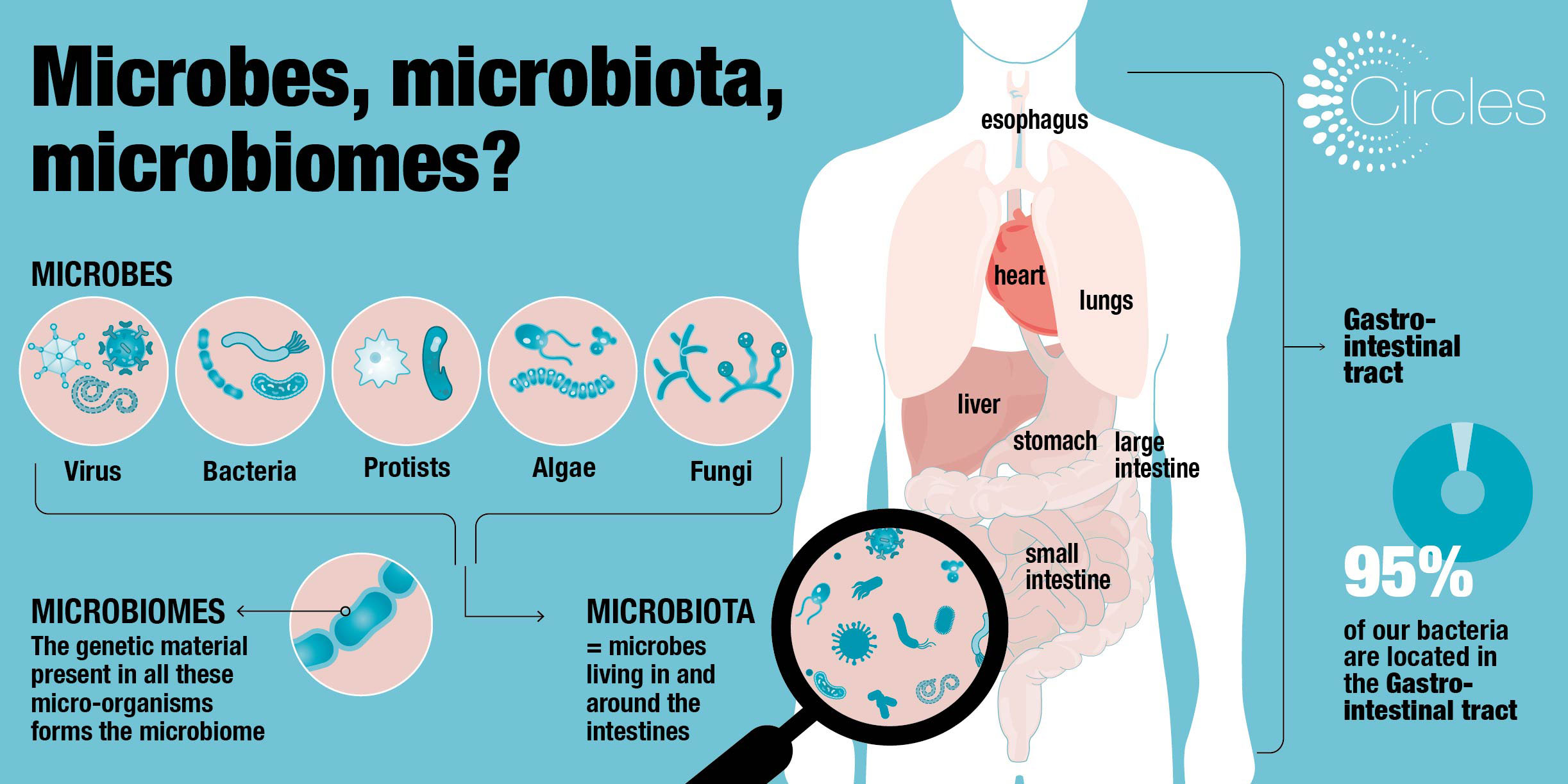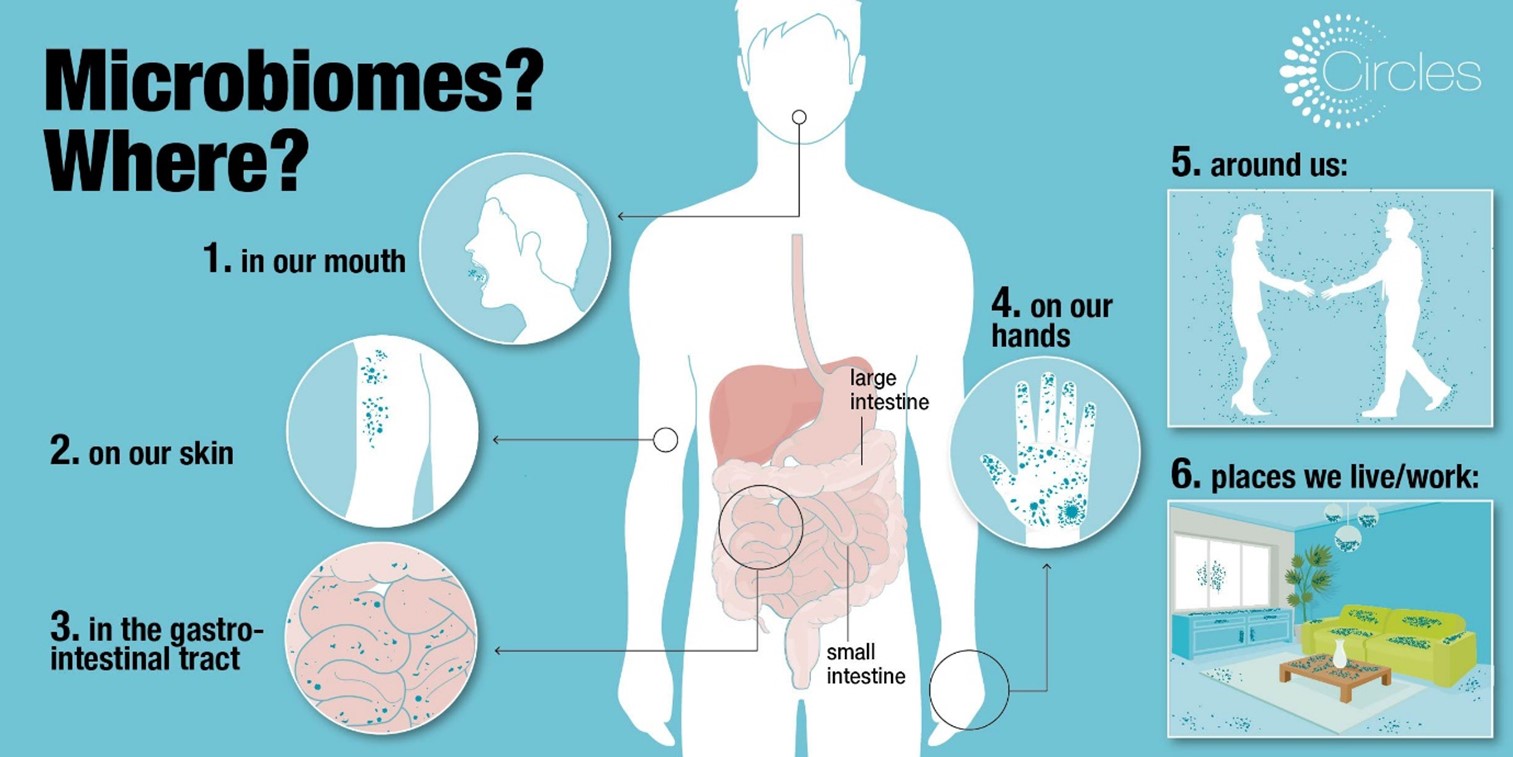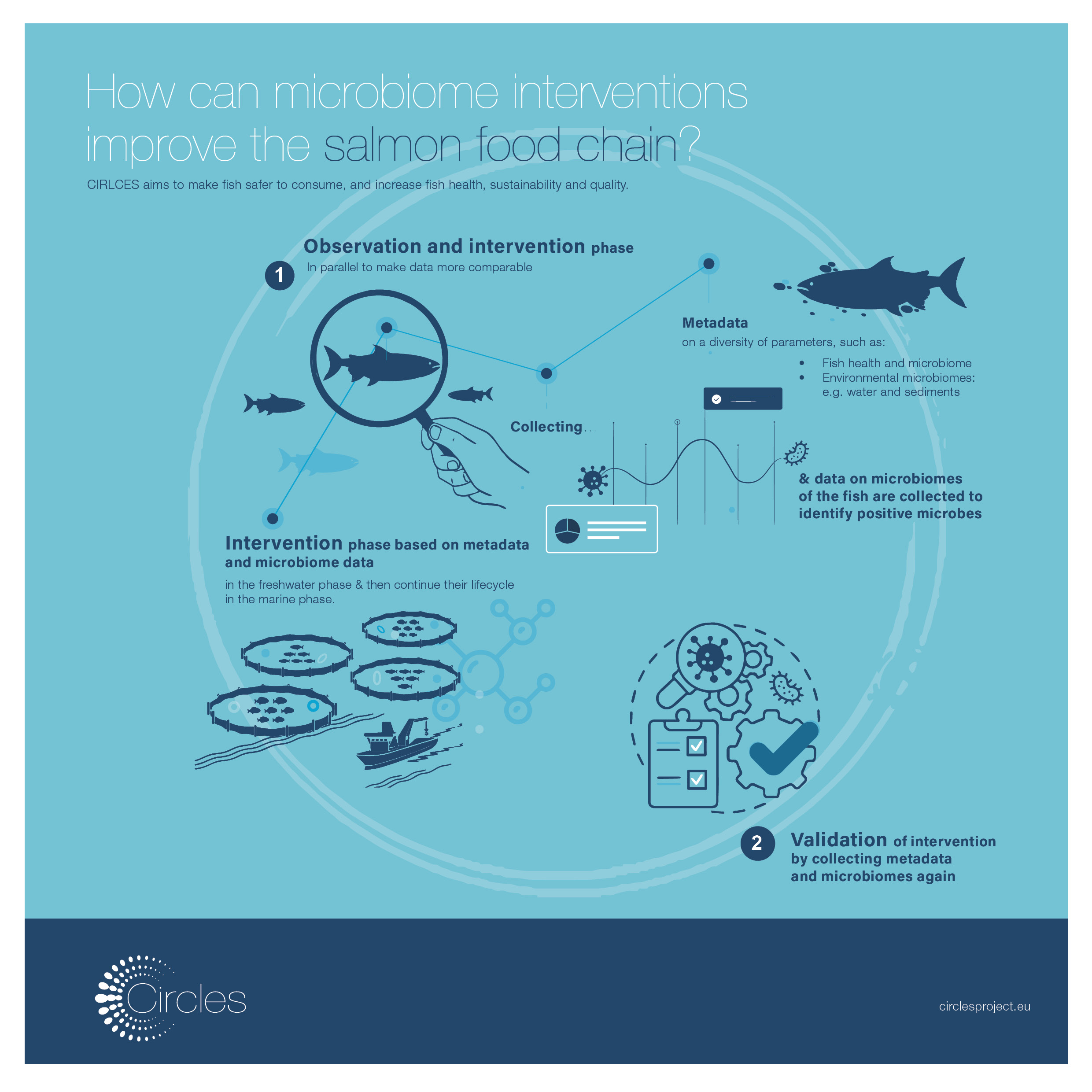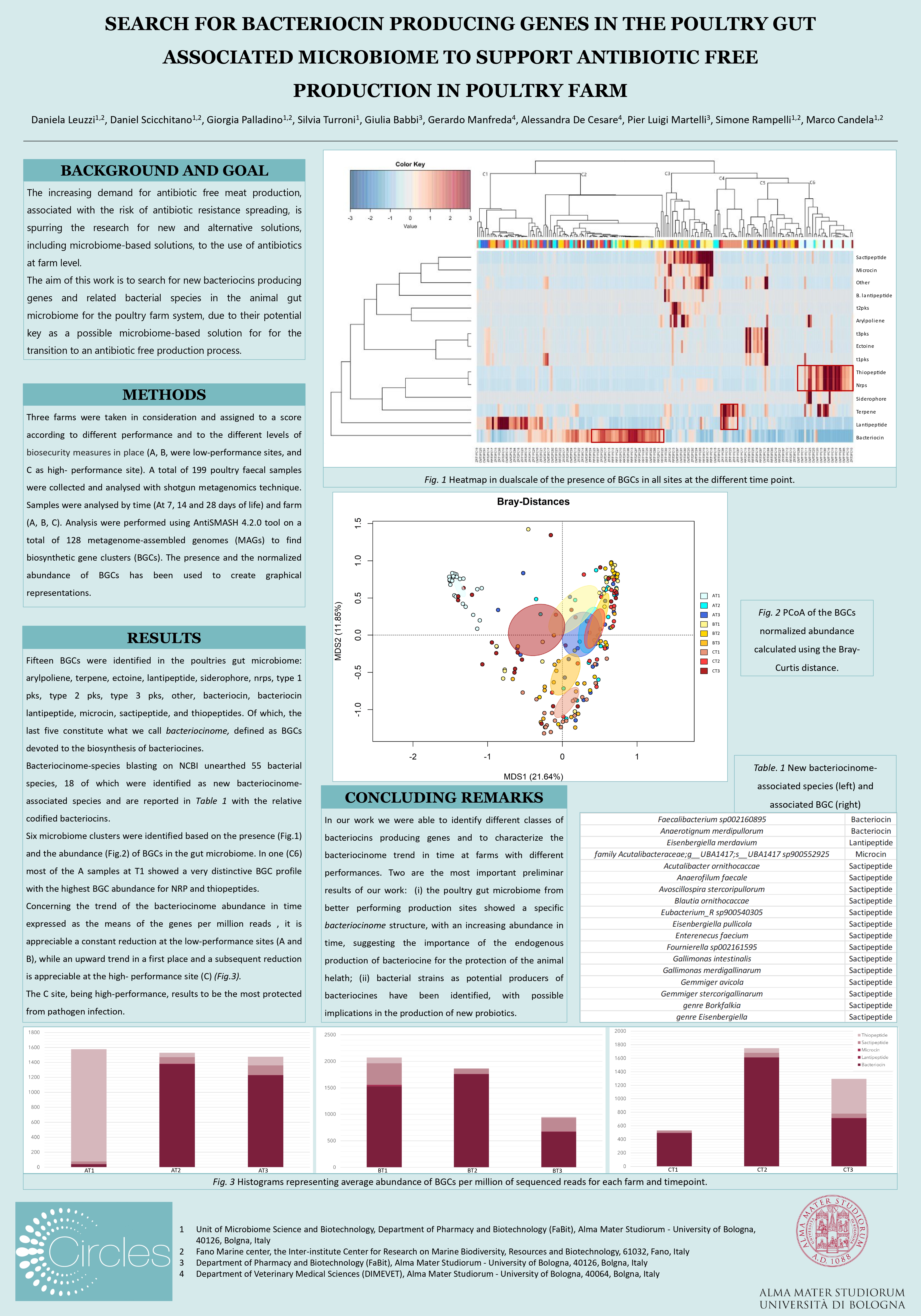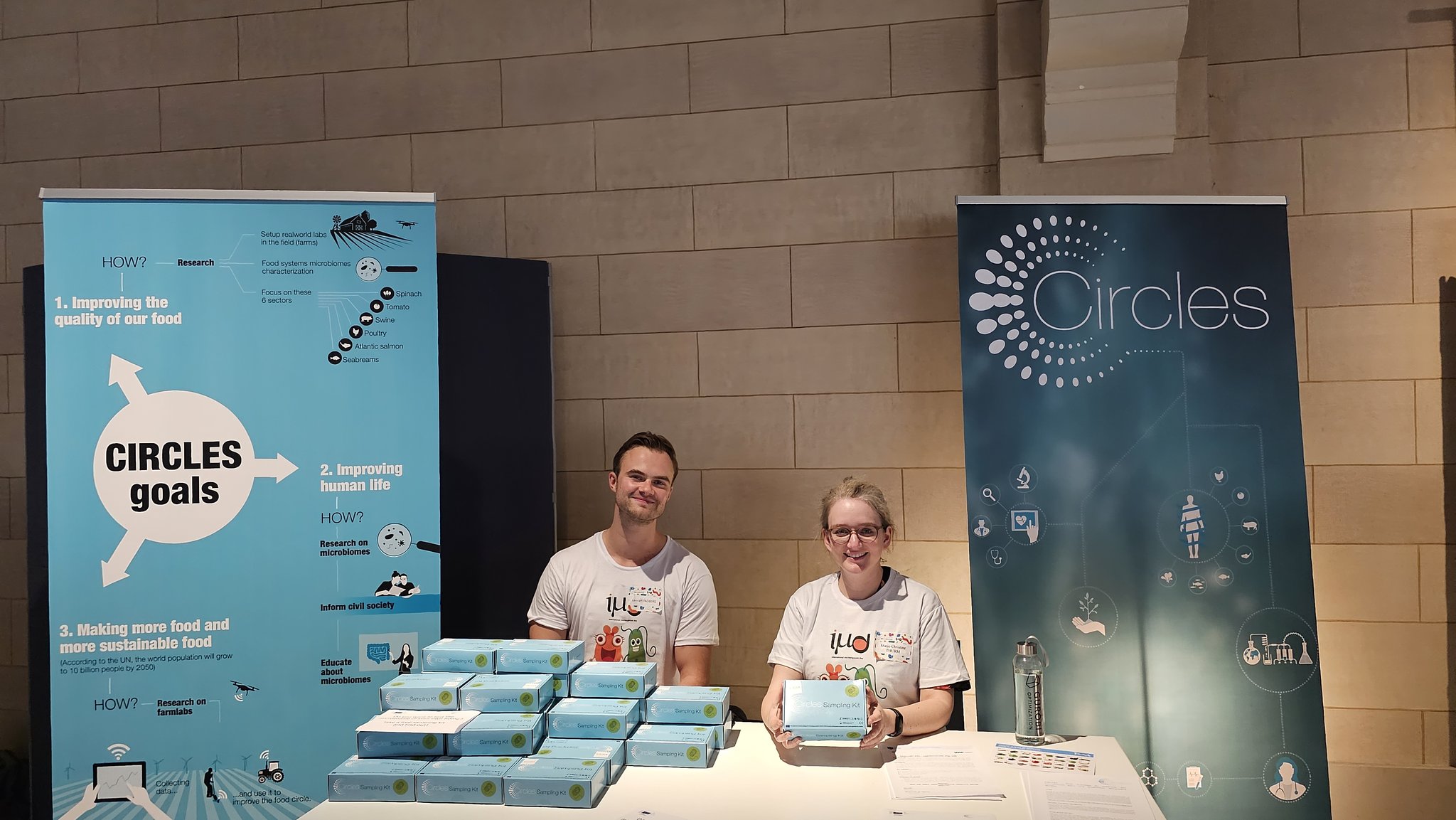Understanding the microbiome has enormous potential in public health, particularly to prevent and treat many non-communicable diseases. This article explains the importance of the human microbiome for our health and how both the Human Microbiome Action and the CIRLCES project work on improving public health with microbiome research.
The Human Microbiome – essential to maintain health
For decades, chronic diseases have been steadily on the rise, representing a major threat to healthy ageing. According to the WHO, chronic diseases will affect one in four people by 2025. The development of health and disease is shaped by an important factor. On and inside of our body live over 100 trillion microbes that are often referred to as our microbiota or microbiome. In fact, the number of microbes in an average human body exceeds by far the number of human cells. Most of them can be found in our gut, particularly in the large intestine.
These microbes are generally not harmful, rather they are considered beneficial colonizers that are essential to maintaining health. They help us break down our food to extract essential nutrients, produce certain vitamins, regulate our immune system, and fight off other disease-causing microbes. Scientists in the field of microbiome research found that changes in the microbiome are linked to numerous diseases such as obesity, diabetes, allergies and even anxiety, depression, and autism.
A new EU funded project: The Human Microbiome Action
Despite promising advances in microbiome research in recent years, meaningful clinical applications, scientific sound diet and lifestyle recommendations and public health guidance from research outcomes are still lacking. One crucial reason for this shortfall in harnessing the microbiome’s potential is the lack of commonly used and accepted foundational approaches within research.
The Human Microbiome Action project aims to further improve microbiome research and innovation by providing important guidelines and recommendations for the international research community to improve public health. The project will bring together international experts to secure standards and deepen our knowledge about the microbiome. Finally, this will lead towards microbiome-based research and innovations for better diagnosis and personalized disease prevention and treatment. The project will pave the way to a European Microbiome Centres Consortium, a platform to collaborate with microbiome experts in Europe and worldwide. With Human Microbiome Action, the human microbiome will be recognized for its true value in mankind and leading towards a better public health.
Human Microbiome Action is a project funded by the European Commission through the Horizon 2020 program. Coordinated by the French National Research Institute for Agriculture, Food and Environment (INRAE) – also partner in the CIRLCES project– , 17 European partners from 9 different countries will work on this ambitious goal over the next years until 2024.
The human microbiome in CIRLCES
Although CIRLCES focuses on 6 different food chains within vegetable production, husbandry and aquaculture, there is always also a link to the human microbiome. All foods that we eat have microbes in and on them and microbiome-based solutions can help improve food safety, as well as the health of people and the environment, also helping to repress harmful microbes.
Another example is that in CIRCLES researchers are exploring gut and skin microbiomes of workers in close contact with animals, plants and fish. This will help to increase knowledge on microbiomes transmission from the working environment to humans.


